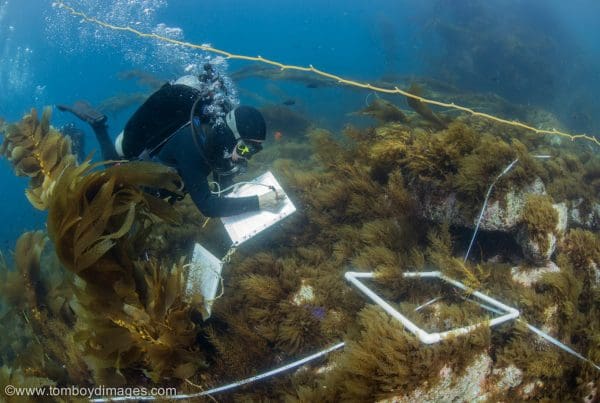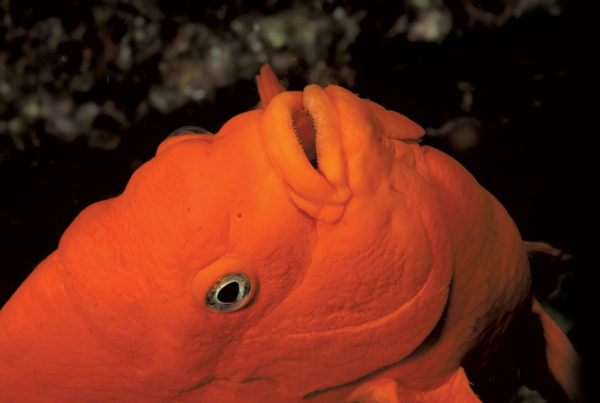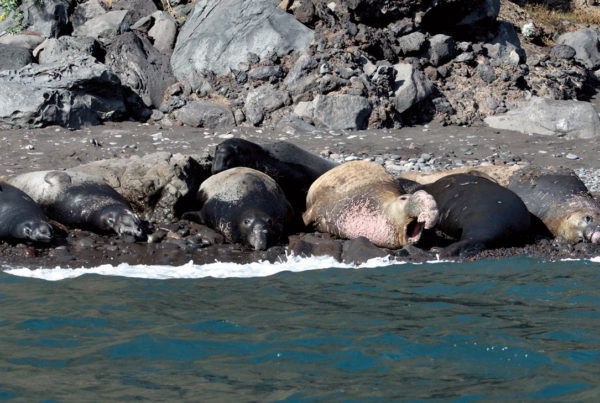Like it or not, underwater hunting, the act of taking seafood underwater for personal consumption, is still quite legal in this state, widely practiced and, in this writer’s opinion, a very legitimate activity. Clearly, however, mankind has overharvested widely in most, if not all, areas of the sea. Most say, rightfully so, that the commercial harvesters are to blame but the sport hunter must take their share of the blame as well. Underwater hunting, along with commercial and sport rod and fishing will be more restricted in the future. But it will likely always be legal to some degree or another.
Should you yourself hunt?
Here the choice becomes more personal. I have backed off on a lot of my underwater hunting in the last few years. I still do take game but often I am busy with a camera, diving in an area where game is scarce, or, more often than not, have less of an attitude of “taking from the sea.” Whether or not you choose to hunt underwater will depend on a number of individual circumstances and choices.
Ethical, even moral choices, come clearly come into play. If you believe no animal should be harmed for human consumption, clearly you will not want to hunt. But if you simply feel sea life should not be taken “in my back yard,” yet you go on eating tuna sandwiches or ordering seafood at the restaurant, you’re kidding yourself. If you are going to consume seafood, if at all possible, hunt and prepare it yourself. You’ll better appreciate the food, it will be of better quality and, in general, you’ll do less damage to the environment in the long run—and you’ll get the thrill and fun out of hunting underwater.
Other considerations you should take before making the decision to hunt or not would be your physical condition, your stomach for the hunt, and if you can afford it. Many kinds of hunting in California are relatively benign activities that are little more than underwater gathering. Clam and rock scallop gathering are example. Requiring a little more effort is hunting for lobster and abalone (free diving only on the North Coast). But even these “gathering” activities generally require more physical prowess that just cruising across the bottom and most forms of photography. On the outer edge of physical difficulty in underwater hunting is spearfishing while free-diving. To conquer some of the more desirable species of fish, mainly white sea bass, breath-hold diving is required. You’ll have to work at the physical discipline required. You must first be in shape and then work on a very clear pattern of relaxing in the water. And then you have to work on your hunting technique. It takes time.
Do you have the stomach for the hunt? It is a very legitimate question. Some divers have no problem plucking abs or rock scallops or wrestling with a lobster, but when it comes to shooting and eventually gutting fish, no thanks.
Finally can you afford it? Underwater hunting is actually relatively inexpensive. You can get started in the “gathering” parts of the activities with well less than $100 investment. And it is one of the few underwater activities that will actually pay for itself (or at least possibly cover part of the cost). It is when you get into spearfishing that costs begin to mount up. Simple guns can be relatively inexpensive, but the larger fancy ones, the guns required to go after the big game in a serious way, often require an investment of several hundreds of dollars. Again, your investment will bring a return, but only if you put in the time and effort to learn how to use the gun properly and, more importantly, how to stalk and land your selected quarry.
In spite of the increased restrictions to be imposed on underwater hunting activities, this faction of diving will be with us for a long time in the future. I’m looking forward to future underwater hunts, especially with my son. Should you hunt? That is a personal choice for you to make. With the right kind of future resource management, hopefully it will be a choice that we can all continue to make.










